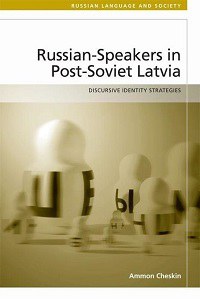(N)either Latvian (n)or Russian: Can Russian Speakers Find a Legitimate Place in the Discourses of the Latvian Nation-State?
DOI:
https://doi.org/10.22029/ko.2016.995Abstract
The book Russian-Speakers in Post-Soviet Latvia examines the trajectories that Russian-speaking identities have been following since Latvia regained its independence in 1991. The monograph is based on the discursive constructivist approach, mainly on critical discourse analysis (CDA) that seeks to investigate how the identities of Latvian Russian speakers are constructed and, even more important, changed in various social, political, and journalistic sources. By analyzing different political and media sources, Cheskin reaches the conclusion that Russian-speaking identity is based on the synthetized position between competing Russian and Latvian discursive positions. The following research has also shown that a significant number of Russian speakers make a sharp distinction between ‘cultural’ Russia, with which they commonly associate themselves, and ‘political’ Russia, to which they are often opposed.
References

Downloads
Published
Issue
Section
License
All articles (not book covers) in KULT_online from issue 50 on are published under the license Creative Commons Attribution 4.0. All published articles may be reused under the conditions of the license, particularly for commercial purposes and through editing the article (Human-Readable Summary). All authors (have) permitted the publication under the above mentioned license. There is no copyright transfer towards KULT_online. For all book covers specific rights might be reserved, please contact the respective publisher for any lawful reuse. All contributions published in issue 1-49 of KULT_online are free available online and protected by the German Copyright Law.



